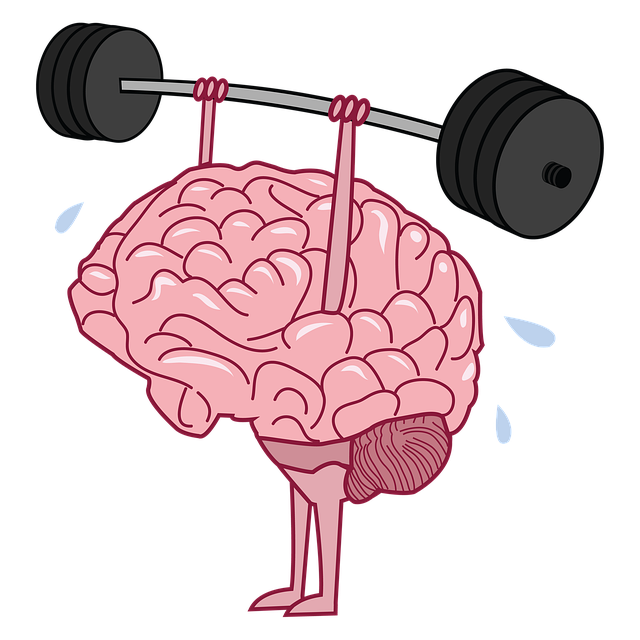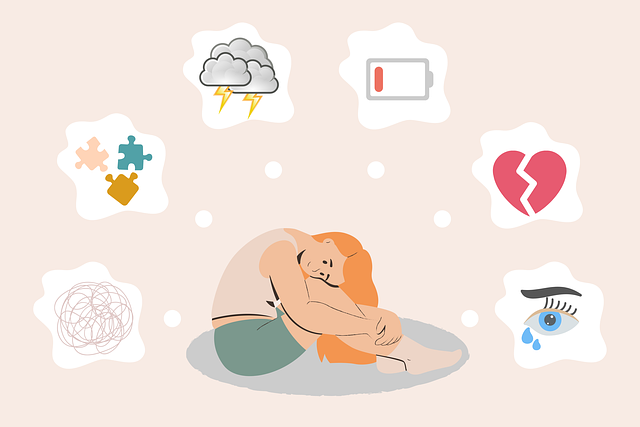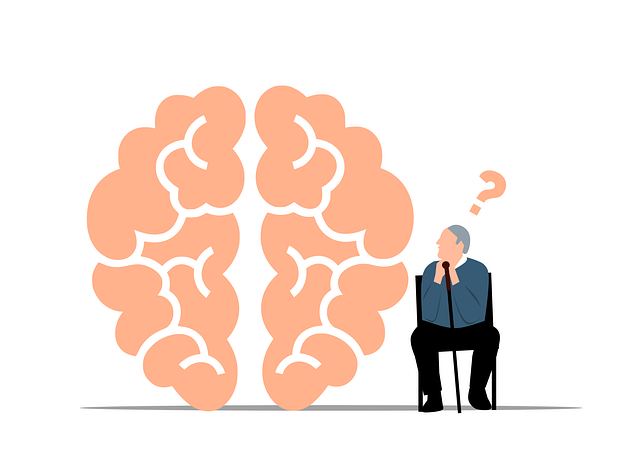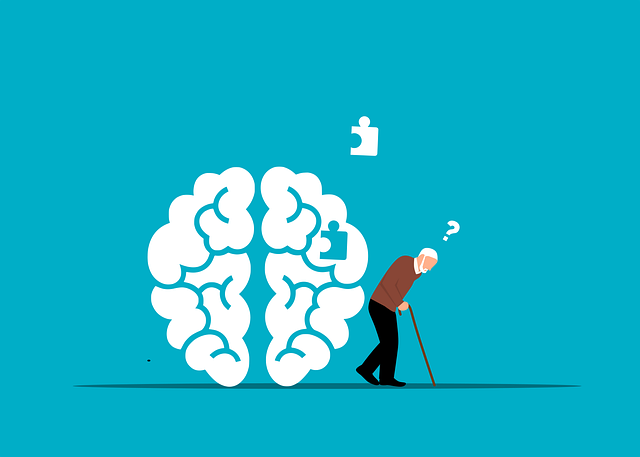In cities like Boulder, mental illness stigma, particularly around sexual addiction, hinders treatment and recovery. Access to specialized therapy, such as Boulder Sexual Addiction Therapy (BSAT), is vital for reducing this stigma. BSAT employs burnout prevention strategies, education, and social skills training to create a supportive ecosystem for both patients and practitioners. By integrating educational initiatives into various settings, challenging stereotypes, and implementing compassionate care practices, we can foster understanding and reduce mental health barriers. Media representation, policy changes, and advocacy further contribute to breaking down stigma, encouraging help-seeking behaviors, and promoting emotional well-being through programs like BSAT.
Mental illness stigma, a pervasive societal issue, significantly hinders individuals from seeking necessary support. This article explores targeted efforts to reduce stigma, focusing on education, therapy, media representation, and policy advocacy. We delve into strategies like inclusive education, evidence-based therapies, responsible media coverage, and supportive policies, highlighting their potential impact on mental health. For instance, initiatives such as Boulder Sexual Addiction Therapy exemplify community-driven approaches that foster understanding and recovery.
- Understanding Stigma: Its Impact on Mental Health Seekers
- The Role of Education in Breaking Down Stigma Barriers
- Empowering Recovery: Supportive Therapies and Communities
- Media Representation and its Influence on Public Perception
- Policy Changes and Advocacy: Driving Sustainable Progress
Understanding Stigma: Its Impact on Mental Health Seekers

Stigma surrounding mental illness can have profound effects on individuals seeking help, often leading to delays in treatment and recovery. This phenomenon is particularly evident in cases of sexual addiction, where shame and guilt can be overwhelming barriers. In cities like Boulder, where access to specialized therapy, such as Boulder Sexual Addiction Therapy, exists, understanding and reducing stigma are crucial steps toward fostering a supportive environment.
The impact of stigma extends beyond the individual, affecting communities and society at large. It can discourage people from openly discussing their struggles, seeking professional help, or even acknowledging symptoms they may be experiencing. This can lead to chronic conditions going untreated, exacerbating existing mental health issues, and potentially contributing to burnout among healthcare providers who are already overworked. Implementing effective burnout prevention strategies for healthcare providers and organizing stress management workshops can complement stigma reduction efforts by creating a healthier ecosystem for both care seekers and practitioners. Additionally, social skills training has been shown to be beneficial in helping individuals navigate challenging conversations around mental health, fostering a culture of understanding and support.
The Role of Education in Breaking Down Stigma Barriers

Mental illness stigma reduction efforts heavily rely on education as a powerful tool to break down barriers and foster understanding. By integrating educational initiatives into communities, schools, workplaces, and healthcare settings, we can challenge stereotypes and misconceptions surrounding mental health issues. Programs focused on increasing awareness, promoting empathy, and providing accurate information play a pivotal role in creating an environment where individuals feel comfortable seeking support without fear of judgment or discrimination.
At Boulder Sexual Addiction Therapy, for instance, our approach emphasizes the importance of education tailored to specific populations, considering cultural sensitivity in mental healthcare practice. We implement burnout prevention strategies for healthcare providers to ensure they remain empathetic and equipped to offer quality care. Through these efforts, we aim to support emotional healing processes, ultimately contributing to a more inclusive society where mental illness is met with compassion and understanding, rather than stigma.
Empowering Recovery: Supportive Therapies and Communities

In the quest to reduce the stigma surrounding mental illness, supportive therapies and communities play a pivotal role in empowering individuals on their journey towards recovery. One such example is Boulder Sexual Addiction Therapy, which offers specialized treatment for those struggling with sexual addiction. By providing a safe and non-judgmental space, these therapeutic approaches facilitate open discussions about complex emotions and behaviors, enabling individuals to develop effective coping strategies.
Community involvement further amplifies the impact of stigma reduction efforts. Support groups and peer mentorship programs create a sense of belonging and understanding, fostering an environment where those facing mental health challenges can share their experiences without fear of ostracization. This collective approach not only aids in burnout prevention strategies for healthcare providers but also empowers individuals to take control of their mental well-being, promoting improved anxiety relief and mood management.
Media Representation and its Influence on Public Perception

The media plays a significant role in shaping public perceptions about mental illness, often influencing how society understands and responds to various conditions. Accurate and compassionate media representation can be a powerful tool in reducing stigma associated with mental health struggles, including issues like sexual addiction. For instance, a Mental Wellness Podcast Series Production focused on these topics, featuring real-life stories and expert insights from professionals like those at Boulder Sexual Addiction Therapy, can offer valuable education and humanize the experience, fostering empathy among listeners.
When media portrays individuals with mental health challenges in a nuanced and sympathetic light, it contributes to an environment where conversations about emotional intelligence and mental wellness become more common. This shift in perception is vital in encouraging people to seek help without fear of judgment or discrimination. By presenting diverse narratives and promoting open discussions, media platforms can play a significant role in Emotional Well-being Promotion Techniques, ultimately reducing the stigma that often prevents individuals from accessing the support they need.
Policy Changes and Advocacy: Driving Sustainable Progress

Policy changes and advocacy play a pivotal role in sustaining progress against mental illness stigma. By implementing laws that protect individuals with mental health conditions from discrimination, we create an environment where folks like those seeking Boulder Sexual Addiction Therapy feel safe and supported. Advocacy groups push for increased funding for mental wellness programs, which improves access to services, ensuring more people can find the emotional regulation tools they need.
These efforts also foster a culture of compassion cultivation practices. When policies promote understanding and empathy, it becomes easier for society to embrace diverse experiences with mental health. This shift encourages open conversations about mental illness, reducing the whispers and stigma that have long surrounded these issues. As we continue to advocate for equitable access to care, we move closer to a world where everyone can prioritize their mental wellness without fear of judgment or prejudice.
Mental illness stigma reduction is a multifaceted effort that requires education, supportive communities, and policy changes. By understanding the profound impact of stigma on mental health seekers, we can empower individuals through therapies like those offered at Boulder Sexual Addiction Therapy. Media representation plays a crucial role in shaping public perception, making accurate and empathetic portrayals essential. Advocacy and policy reforms further drive sustainable progress, ensuring that those facing mental health challenges receive the support and understanding they deserve. Together, these strategies can create a more inclusive society where individuals feel comfortable seeking help without fear of judgment.











